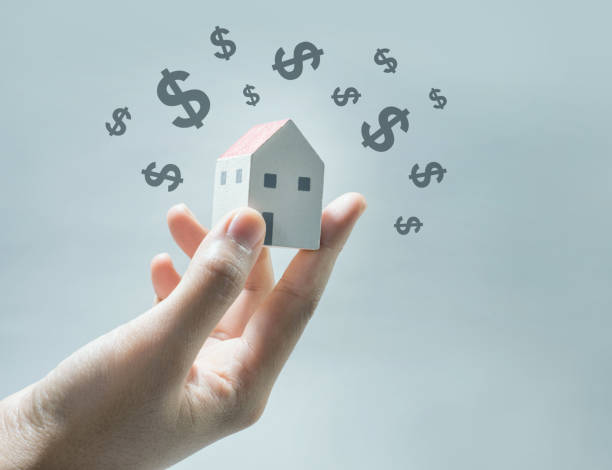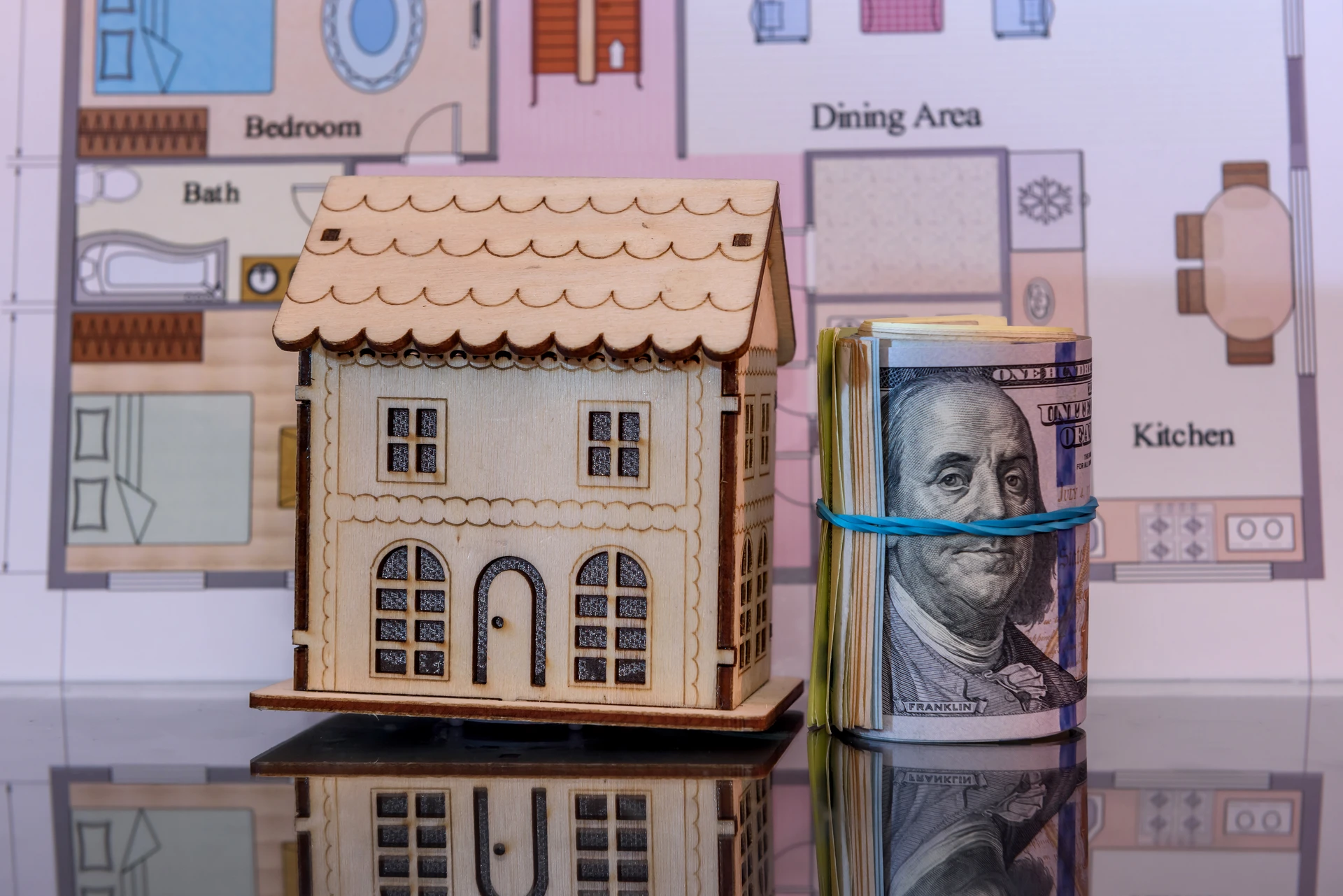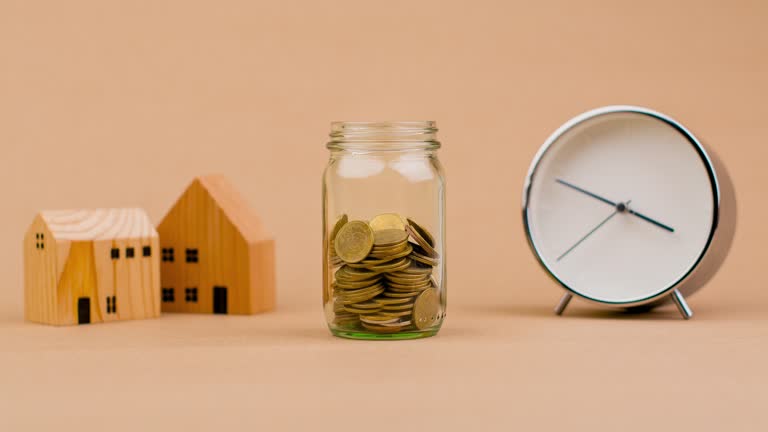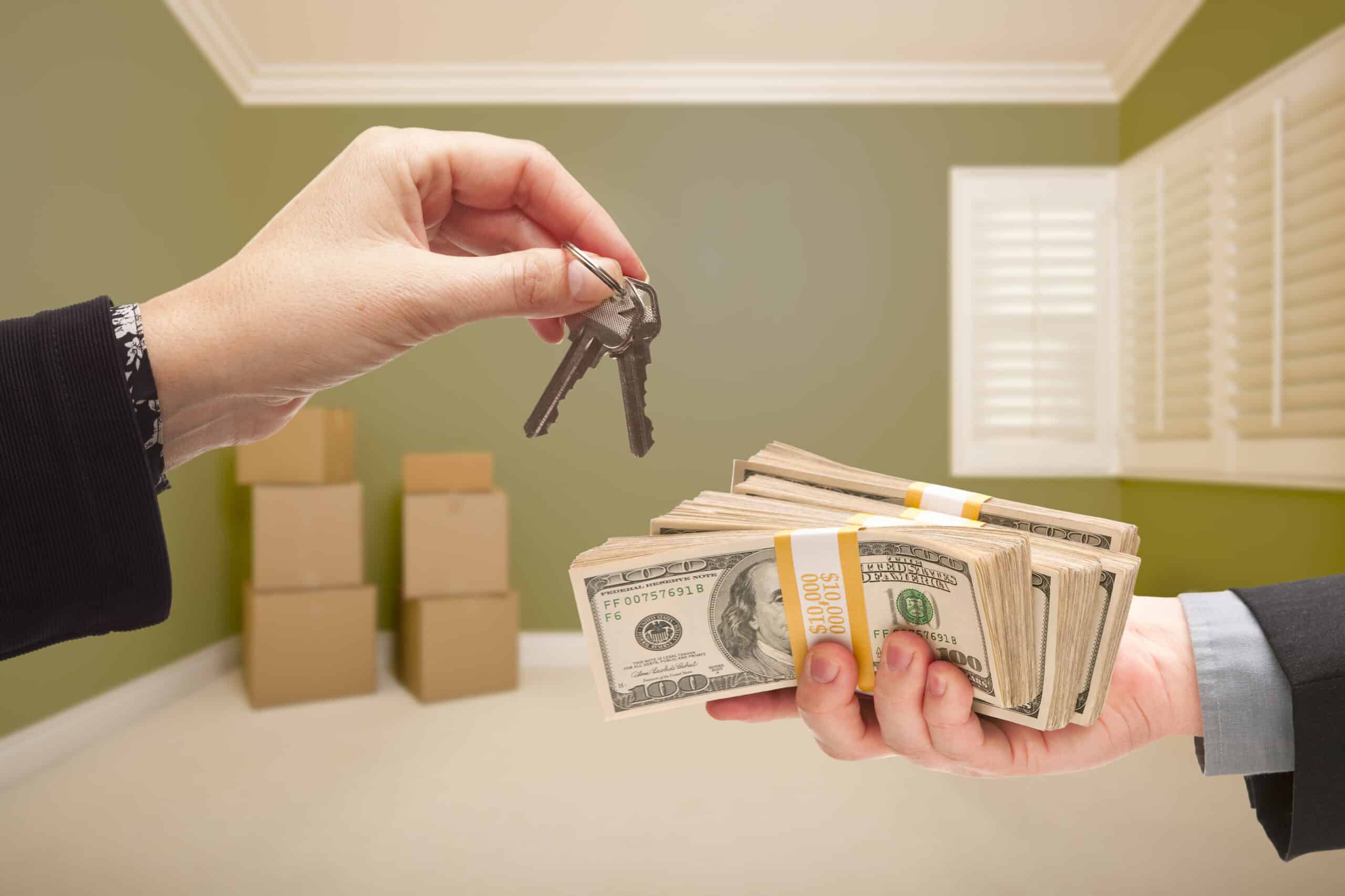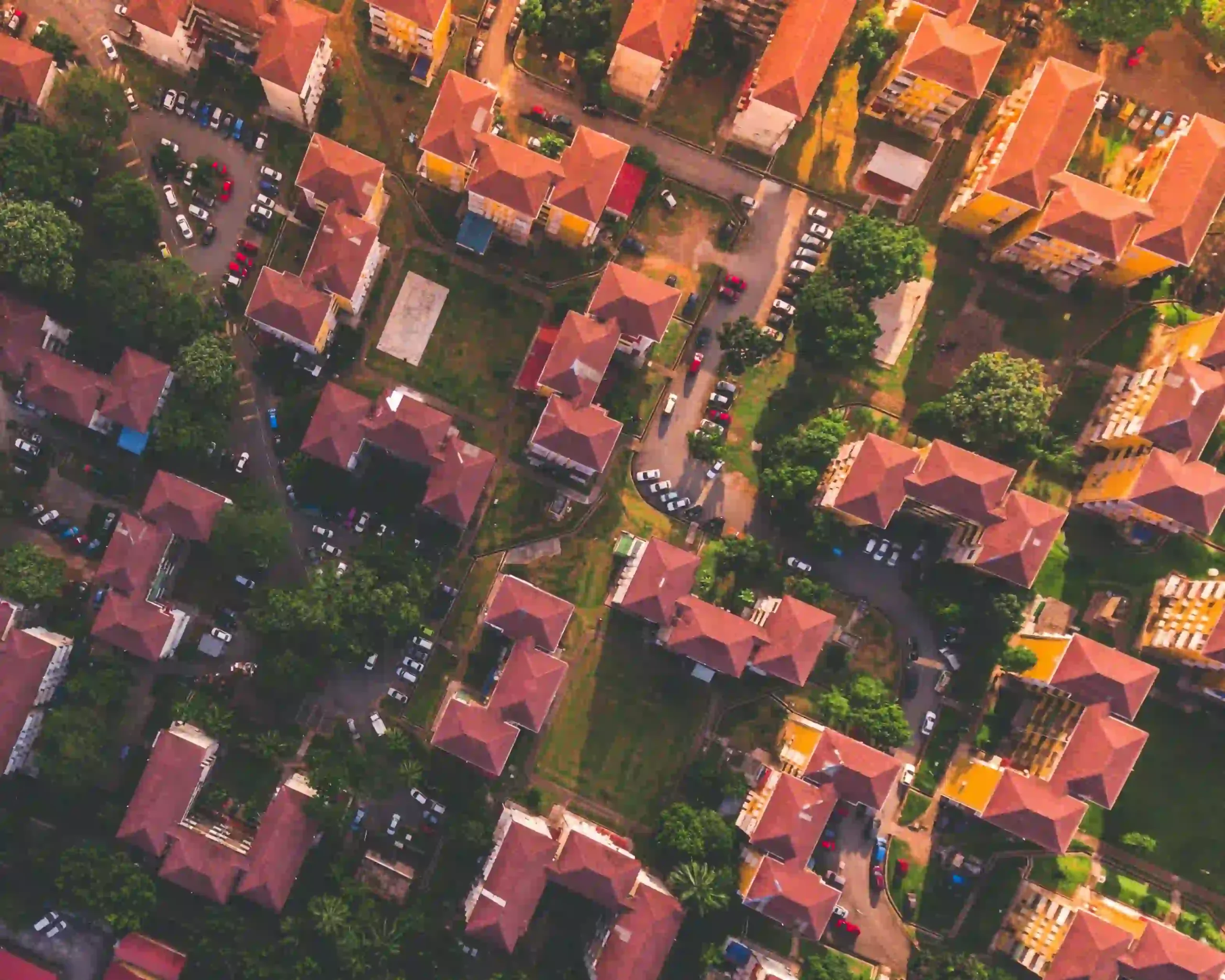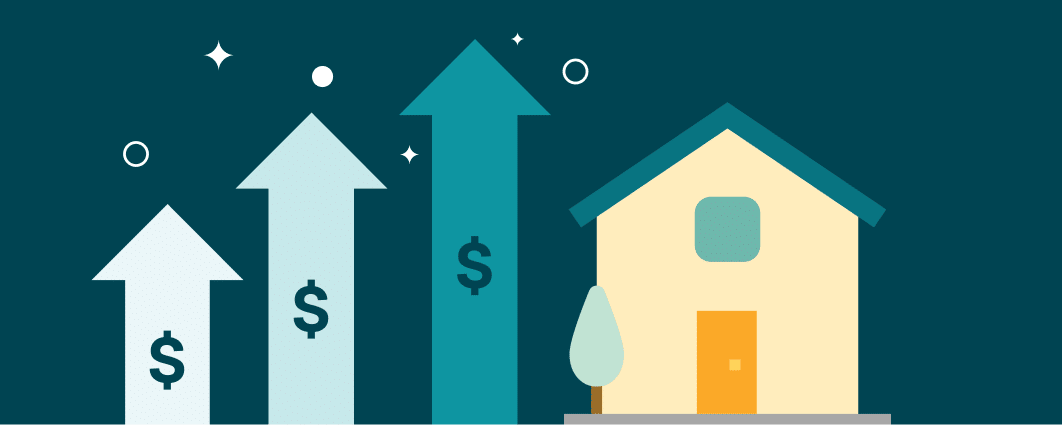
How soon can you sell a house after buying it? Selling a Home After Just One Year

Buying a house is a big deal-probably the biggest single purchase a person ever makes-and once done, most people settle in for the long haul. According to some studies by Redfin and the National Association of Realtors, the median for how long U.S. homeowners are staying in their homes is 13 years-that figure having stayed steady since 2019. Whatever the case may be, some homeowners could find themselves selling a home after just one year or even sooner.
Get your fair cash offer in 30 seconds
We make 200+ offers every day nationwide in every US city
If you find yourself wondering how soon you can sell a house after buying it-whether out of choice or necessity-worry not. Though rare, selling this soon is definitely far from unheard of. Here is everything you need to know about putting your home back onto the market after owning it a year or less.
Cons of Selling a Home After Just One Year, and How soon can you sell a house after buying it?
Legally speaking, there is nothing to stop you from selling on a home after a year-or even immediately after closing on it, for that matter. But just because you can doesn’t always necessarily mean you should. There are financial challenges associated with selling a house quickly-especially when you haven’t owned it in a very long time.
First, you may be liable to pay capital gains tax if the sale of the property goes for a price higher than that which it was bought. You may be faced with hefty tax bills, since you have not stayed in the home long enough to qualify for some of the exemptions available.
You would also have to pay the mortgage on the property in full, which could involve additional charges or penalties. Amy Cherry Taylor, a Realtor and associate broker at Amy Cherry Taylor & Associates in Fredericksburg, Virginia, says, “if you used a first-time homebuyer program or a grant program, you may have some type of fee that will be owed upon the sale of the property.” So, while selling a home after just one year is legally permissible, it’s important to factor in the financial drawbacks.
Capital Gains and Tax Implications
Perhaps one of the largest possible costs associated with selling a house within one year involves the taxes on capital gains. In many instances, a homeowner can exclude a large percentage of their capital gains from tax if they have lived in their primary residence for a minimum of 24 months. If this two-year mark has not been attained, you will more than likely be required to pay taxes on the gain of the sale.
Capital gains are of two varieties: short-term and long-term, depending on how long you have held the asset. If you sell within a year of buying, gains will be considered ordinary income and taxed as such, up to 37 percent, depending on your bracket. If you have owned the home longer than a year, your gain will be subject to the long-term capital gains tax rates, which are generally lower.
Get your fair cash offer in 30 seconds
We make 200+ offers every day nationwide in every US city
To estimate the amount of your capital gains tax, subtract your original purchase price-less any selling costs and home improvements-from your final sale price. If your net proceeds in 2024 are less than $44,625 you will pay nothing in capital gains taxes. However, if your gains are between $44,626 and $492,300 you will pay 15%, and 20% for those above that amount. Taylor suggests you consult a tax professional to know how it will affect you in your situation when you sell a home after one short year.
You’ll also want to consider your new home’s taxes. For instance, if you’re relocating to an area where the property taxes are much higher, it can affect your budget. This is always something you should keep in mind when selling a home after just one year.
Mortgage Prepayment Penalties
If you financed your home purchase, then your lender may charge you a prepayment penalty for paying off your mortgage such a short time since buying a house.
“When you sell within one year or less, you could face a mortgage prepayment penalty, this could be around 2-5 percent of the mortgage amount,” says Chris Allard of the Chris Allard Mortgage Team in Ottawa, Canada. “When you prepay, the minimum penalty is 3 months interest to a maximum of around 5 percent of the whole mortgage amount.”
Not all loans carry this penalty, however. Amy Cherry Taylor says, “Most mortgages do not have a prepayment penalty, but you will need to refer to your loan agreement to determine whether this is true for you or not.”
Closing Costs and Moving Expenses
Apart from taxes, one has some other costs associated with the sale of a home after one year, like moving costs. According to HomeAdvisor, the average moving cost is $1,677, though this goes up dramatically with longer moves.
Besides that, sellers need to pay closing costs. These vary by state, but the average, per ClosingCorp, is just over 1% of the home’s sale price. So, if you sell your house for $300,000, you could expect to pay around $3,000 in closing costs.
Exemptions to Early Selling Charges
Of course, there are a number of exemptions to this, which would not allow one to pay the additional fees for selling one’s home after only one year. Examples of these include hardship situations that involve a job loss, divorce, or even the death of a member of the household. Military service might als
o be considered an exemption. If you believe that at least one of these applies to you, then it is always best to check with an attorney.
Selling a House a Year Later: How & How soon can you sell a house after buying it?
Moving within a year or less of buying a house is one scenario that most homeowners try to avoid, but life circumstances sometimes force a quick sale. Whether due to job relocation, financial hardship, or personal reasons, selling a home so soon after purchasing it can pose unique challenges. However, there are strategies you can use to minimize the financial impact and get through the situation successfully.
1- Try Waiting If Possible
If you have any flexibility in your timeline, consider delaying the sale until you’ve owned the property for at least two years. That way, you could avoid capital gains taxes-often applied to anyone who sells a primary residence before the two-year mark. The IRS lets homeowners exclude up to $250,000 of profit ($500,000 for married couples) from taxes if they meet the two-year residency rule. You may be able to save a lot of money by waiting.
Of course, that won’t always be possible, since you may have urgent reasons for selling. If you can’t wait, consider renting out the home for the short term. Renting will provide income that pays the mortgage and most other expenses associated with owning the home, and you can hold on longer. Even if it is just part of the home, such as a basement or separate unit, it will help to offset some of your financial burden and can buy you time to sell under more favorable conditions.
2-Consider Home Staging for Maximum Appeal
If selling is your only option available and if you are concerned about the short time period you have owned the home, consider professional staging to maximize the appeal of the property. That could be a warning to potential buyers, and they would assume there was something wrong with the house in the first place. According to Chris Allard, a mortgage broker in Ottawa, “Buyers will often know how long you’ve lived in a home and might jump to conclusions that it’s problematic.” Professional home staging lessens the likelihood of these concerns.
Professional stagers understand how to show off the best features of a property and make it look more open, inviting, and ready for buyers. The simple things in life, like rearranging furniture, fresh paint, or an upgrade in curb appeal, may be just what the doctor ordered regarding changing how fast your house sells and for what price. The idea is to get your home back as nice as it can get, so it showcases why you chose it in the first place, even though you need to move.
3-Sell for Cash in a Hurry: Consider Alternative Platforms
If you have limited time and want to sell as soon as possible, the conventional way of selling a house is not likely to work. The alternative would be cash-for-homes companies or iBuyers since they mostly make instant cash offers to help you circumvent the tedious process involving lenders and waiting for finance.
The reason cash deals are so attractive is because they often close in days or weeks. You can bet your boots that selling to either a cash-for-homes company or iBuyer will result in a slightly lower sale price than what you would get through the traditional listing process. But if you are in a pinch regarding time, the speed of the sale alone may be worth a lot. Plus, cash buyers generally purchase properties “as-is,” meaning you will not have to worry about costly repairs or renovations prior to sale.
These can be your best options if you are in pursuit of speedier results and do not mind sacrificing some of the potential profits for the sake of speed and ease. However, research into the companies and ensuring you are dealing with a reputable buyer are critical to avoid scams or undervaluation of the property.
4-Work with an Experienced and Skilled Real Estate Agent
The right agent in any house-selling scenario, but particularly when one is selling within just one year of ownership, is key. You’ll be looking for someone with experience in the nuances of your local market and, preferably, guiding clients through tricky situations-like selling a home after a short period of ownership.
A good agent will also be able to help overcome a buyer’s skepticism when they inevitably ask, “Why are you selling so soon?” They could help position your house as a good target for purchase despite the short length of time you’ve been living in it. Whether through staging, pricing strategy, or some other marketing technique, a real estate agent may be the best asset to assure a smooth and successful sale.
Get your fair cash offer in 30 seconds
We make 200+ offers every day nationwide in every US city
Additional Considerations
Selling within a year can be much more financially and logistically complicated than just dealing with taxes and closing costs, including:
Relocation Expenses: If you moved after all this short period of time, there’s usually added fees for relocation. According to HomeAdvisor, the average local move costs $1,677, but it’s not out of the ordinary for a long-distance move to be much more costly. Make sure to budget in these costs since they can add up pretty fast, especially once you’ve already spent money on the initial move into your current home.
Prepayment Penalties: In case one is paying off his or her mortgage, then he should know whether his loan involves any prepayment penalty or not. In case of early payoffs, the lender may also charge a fee. According to Chris Allard, “The penalties can be as high as 2 to 5 percent of the loan amount or at least three months of interest.”. Not all mortgages have prepayment penalties, but you will certainly want to check your loan terms to confirm this is
indeed the case before moving forward with your sale.
Property Taxes in Your New Location: Depending on where you are going to be moving, you could very well be looking at a whole lot higher property taxes in your next home. You’ll want to make sure that you factor these into your budget because this can make some serious differences in your month-to-month expenses.
You may also be qualified for some exemptions from certain financial penalties, if the reason for your sale is due to hardship such as job relocation, divorce, or the death of a family member. Military members can also be qualified for exemptions in all capital gains taxes and other costs involved in a quick sale. You can consult a tax professional or real estate attorney regarding this and explore your options.
Enter your information here to start the journey:
FAQs: Selling Your Home After Only One Year.
Will I still be able to make money selling my house after one year?
The answer is ‘yes’, but it’s generally tough to do so, and that depends on many factors. First, your home values in the area where you live have to increase enough within that period for any profit to be realized. Even if your property has increased in value, you’ll still need to factor in several costs before calculating your actual profit.
For instance, it would require your return to be high enough to pay back both the amount you invested in purchasing the house and the excess costs you have paid, which include closing costs and any prepayment penalties for retiring your mortgage early, in case you borrowed money to buy the home. Prepayment penalties can be as high as 2 to 5 percent of the loan amount assessed when a mortgage is paid off ahead of schedule. On top of that, you can also be charged capital gains taxes if you don’t meet the IRS exclusion on home sales-which requires you to have lived in the house for at least two out of the last five years.
With the possibility of profit so small, it is hard to attain, and most homeowners just about break even after a year when they sell.
Why would you sell your home right after purchase?
Even though it’s seldom the consequence of an unplanned action or situation, there are several reasons one may sell a home right after purchasing it. The common reason could be due to a job transfer whereby you have to relocate to another place of residence for work. Another possible reason may be the case of an uncontrollable financial hindrance, such as instantly losing a source of income, whereby mortgage payments cannot be supported. Others may simply experience life’s blows, such as divorce or a family emergency, that force them to put the house up for sale within a short period after purchase.
On the brighter side, homeowners may sell quickly when, all of a sudden, the neighborhood is highly sought after. For instance, if property values have suddenly hit the roof in your neighborhood since you bought, it may well be very tempting to sell and take advantage of the higher value of your home. Alternatively, if you did a lot of renovations to the place shortly after you purchased your home, this too may increase its value and provide an opportunity to sell for a profit.
But, unless you are a professional house flipper, selling immediately after purchase can be tricky and is hardly done by most homeowners, except when it is of absolute necessity. Many of them are not the smartest financial decisions, since selling so soon can cost you major losses due to closing fees, real estate commissions, and mortgage penalties.
How long do you have to stay in a house before you sell it?
While there is no definite hard-and-fast rule, most real estate professionals recommend five years minimum for the selling of a house after purchase. This allows time to pass so your property should appreciate in value and you can gain enough equity in the home. This way, you are also likely to be able to sell the property at a profit instead of a loss.
You want to wait until you break even, or when the house has risen enough in value to repay you some of the costs of buying it. Those costs include closing costs, real estate agent fees, and mortgage interest paid during the first years of homeownership. In most cases, homeowners don’t reach the break-even point of a home purchase until they have been in the property for several years.
If you sell before reaching the break-even point, you risk selling at a loss. Due to this fact, most real estate experts would recommend that one should not sell within the first couple of years of homeownership unless absolutely necessary.
Is There a Penalty for Selling Your House Early?
There is no stated fine for selling off your house early, but there could be considerable financial implications depending on your situation. Unlike the case of a retirement account where you take money out, which would automatically have a tax fine, there is no fine for selling your house before a stated period. This could be regarded as a financial penalty: You may have to pay capital gains taxes on any profit you make from the sale.
However, the IRS allows you to deduct a certain amount of money-$250,000 in profits from the sale of your home if you’re a single filer and $500,000 if you’re married and filing jointly-but you can deduct this exemption only if you’ve lived in the house for at least two out of the last five years. If you sell the house before that two-year mark, you likely face shelling out capital gains tax on any profit made from the sale.
Less direct consequences of selling early include the virtual certainty of not recovering the various closing costs, administration fees, and moving expenses associated with buying and selling a house. In the early years of your mortgage, much of your payments go to interest rather than principal, and you haven’t built up much equity. That makes it more difficult-or less possible-to sell for a profit early in the mortgage.
How much is the tax penalty for selling your house before two years?
If you sell your home before you’ve lived in it for two years, you’re probably going to miss out on the capital gains exemption from tax that a homeowner gets when selling a primary residence. It is not so much a penalty as it is nonavailment of a tax break. But this could be substantially financial.
Capital gains taxes apply to any gain made from the sale of your home. In this case, if you bought your home for $250,000 and sell it for $300,000, you will have a gain of $50,000. Normally, this home is your primary residence, and you have been residing there for at least two years. The IRS will allow you to exclude up to $250,000 in profit ($500,000 if married) from your income. This often can make many homeowners’ total amount of taxable capital gains zero.
However, if you sell before that two-year mark, you won’t qualify for this exemption, and you pay this capital gains tax on any profits. The tax rate depends on how long you owned the home. On the other hand, if the ownership period has been less than a year, the gain is considered all ordinary income, which may fall into a higher bracket in taxation. If it happens that ownership is between one and two years, then the tax applies to gain as a long-term capital gain; the tax bracket becomes lower than on ordinary income but is still higher compared with other investments.
To Sum Up:
Selling after one year or less is possible but often fraught with additional expenses and tax repercussions, making it not the least injurious option. The best course of action, if you can afford it, would be to wait at least two years before selling-so you won’t be hit with the capital gains taxes-and take some time to build up equity in the home. Being forced to sell sooner might entail financial penalties, higher taxes, and perhaps a lesser sale price. This being an adversarial situation, with some hard work from an adept real estate agent and looking into other options where to sell, you can still come out as best as possible.


